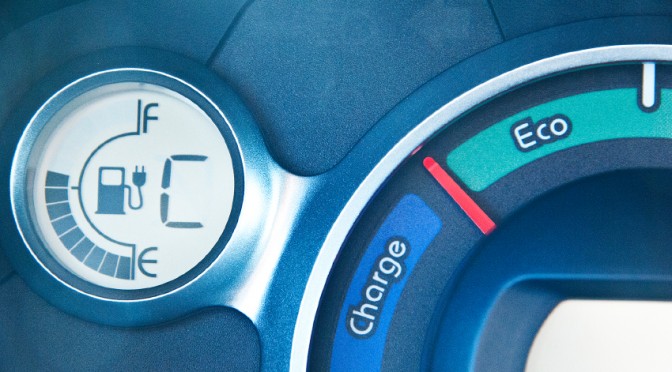British Columbia announced Tuesday it is extending its clean energy vehicle incentive program for another year to encourage more commuters to make greener choices.
Speaking at the opening of the 93rd Vancouver International Auto Show, B.C. Environment Minister Terry Lake said people in the province are starting to understand the program.
“The dealers are starting to become confident in selling these vehicles because they are quite different technology,” Lake said. “So I think all of that together we will see a great uptake in the number of people buying them.”
The program, which offers a 5,000-Canadian-dollar (4,918 U.S. dollars) rebate to those who purchase a new battery electric, fuel-cell electric, plug-in hybrid or compressed natural gas vehicle, was launched in December 2011 at a total cost of 17 million dollars.
The program was set to expire on March 31 but will be extended through the 2013-2014 fiscal year.
Despite just 431 people taking advantage of the rebate to purchase clean-energy vehicles, Lake defended the program’s cost, predicting more people would buy clean vehicles as more than 500 charging stations come online at the end of the month in the western province.
In addition, 12 communities in British Columbia have used community grants to identify 134 key locations for future charging stations. Thirteen direct current fast-charging stations will also be installed this spring along the British Columbia portion of the Trans-Canada Highway.
Canada sold 1.67 million vehicles in 2012, the second best year ever for sales. Pure electric vehicles sales, however, accounted for only 2,222 units.
Despite the tiny figures, mainly due to higher costs of the vehicles and concerns about a lack of an extensive nationwide charging network, the Ford Motor Co. is tripling its production capacity for electrified vehicles in North America this year. Ford will offer five models in either electric, hybrid (motor and electric) or plug-in hybrids.
Dianne Craig, president and CEO of the Ford Motor Co. of Canada, said the participation of the government in creating a charging network is essential if the nascent industry is to grow.
Craig said that greater consumer interest and increased production will eventually bring the price of green vehicles down.
While Ford remained No. 1 in Canada last year with 276,068 vehicles sold, Chevrolet, a division of rival General Motors, moved the most electric vehicles in the country, selling over 1,200 units of its Volt four-door family sedan.
The vehicle, which also has a gas engine for greater distances, has a gas-free range of about 60 kilometers via lithium-ion batteries.
Matt Crossley, Chevrolet director of Canadian engineering, said the company will only build as many cars as are needed.
“It takes a while for people to actually understand it,” Crossley said. “A lot of people don’t necessarily think about how far they go in a day. And they don’t realize that an electric vehicle can do almost all of the things they need to get done in a day in terms of their daily driving.”
While luxury auto brands have been slower to go green, Tim Reuss, president and CEO of Mercedes-Benz Canada, said that with the success of its electric drive, zero-emission Smart car line, the company is looking at a B-Class electric next year and a fuel cell model in either a B-Class or a different model by about 2015.
Volvo, the first manufacturer to produce a diesel plug-in hybrid, plans to launch a new XC90 with hybridization, meaning petrol hybrids and also diesel hybrids.
Marc Engelen, president and CEO of Volvo Canada, said every single car the company produces will have diesel hybrids in the future. The aim for the XC90, Volvo’s biggest seller, will be a fuel consumption of 1.8 liters per 100 kilometers, Engelen said.
He said the company’s view is that hybrid cars are the best solution while price and charging stations are still an issue with purely electric vehicles.
“Both of them are still an issue because the cost of producing an electrical vehicle is of course much higher than a conventional vehicle,” he said. “So that indeed is a point which limits the sales.”


